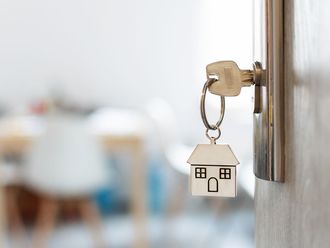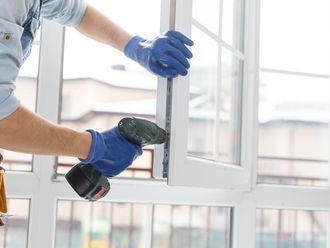
Dubai: Paying rent is the first cost many people factor in when planning their monthly or yearly budget. If post-dated cheques are a cause of stress for you, it might be a good idea to have a conversation with your landlord on other ways in which you can pay your rent.
In Dubai, there are at least five different ways in which you can pay rent, however whether a payment option is available to you or not depends on your landlord and the types of payments they accept. Here is a detailed guide on all the ways in which you can pay your rent in Dubai.
What are the different ways to pay rent in Dubai?
- Postdated cheques
- Bank transfers
- Credit card
- Cash (for small amounts)
- Direct debit
1. Postdated cheques
James Perry, managing director of Dubai-based real estate company haus and haus, said: “Postdated cheques are still the most common form of rental payment in Dubai, although there is a move to introduce direct debit payments . Recently, the Dubai Land Department and Emirates NBD formed a partnership so that rental cheque payments can be automated and digitised using the Central Bank of the UAE’s Direct Debit System (UAEDDS).”
While you can pay through a single cheque, or multiple cheques – up to 12 for a monthly installment plan – the number of cheques you need to submit depends on your landlord.
“Some will accept 12 cheques for a year’s lease, some will accept six, but most ask for four cheques or one cheque. However, it’s always worth negotiating this through your agent,” Perry said.

Some will accept 12 cheques for a year’s lease, some will accept six, but most ask for four cheques or one cheque. However, it’s always worth negotiating this through your agent
2. Bank transfers
While postdated cheques are the norm in Dubai, bank transfers are also preferred, especially by landlords who may be based outside the UAE.
Emma Jayne Main, head of the leasing department at Dubai-based property management company Espace Real Estate, spoke about all the reasons why bank transfers were becoming a preferred option for landlords, over post-dated cheques.
“Sometimes there are issues with cheques like the signature doesn’t match and there is a possibility of the cheques bouncing. Also, if the owner is overseas and the cheque needs to be returned, the bank will only hand it back to the landlord,” she said.
Main added that for tenants who may be new to Dubai and are still waiting for their cheque books, the option to pay rent through a bank transfer might facilitate the moving in process.

Sometimes there are issues with cheques like the signature doesn’t match and there is a possibility of the cheques bouncing. Also, if the owner is overseas and the cheque needs to be returned, the bank will only hand it back to the landlord
3. Credit cards
Credit cards are another possibility, but it is not widely accepted since property management companies and landlords need to be authorised to accept electronic payments.
“You can pay with your credit card, but that depends on the licence of the property management company facilitating the payment,” Main said.
4. Direct Debit
The Dubai Land Department (DLD) is moving to introduce direct debit in Dubai. However, some developers and real estate companies and property agents are already allowing tenants to make direct debit payments for rents in Dubai.
Main said: “Even though there is a push to accept direct debit, it has not been implemented all over Dubai yet. However, once it does become an accepted practice, it will make rent payments and processing very easy,” Main said.
5. Cash
“You can also pay your rent in cash, but only small amounts are accepted. Most landlords want the first payment to be made before handover, so that is commonly done in cash. If the first payment is done through a cheque, it needs to be dated a few days before the start date so that the landlord has received the funds,” Main said.








